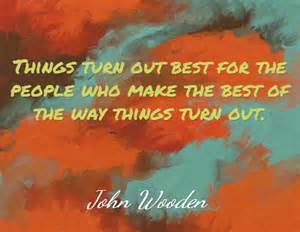I am writing this post sitting on the deck of a house at the Outer Banks watching the gentle waves break on the shore and then recede back into the ocean. In my reverie, I am taken back to the years I spent in Oregon and my first venture to the Pacific Ocean. I was so excited to see the “other” ocean. (Growing up in Pennsylvania, I had been to the Atlantic ‘shore’ a few times.) I was excited, not only to get to see the Pacific first hand, but also to experience clamming and crabbing. The ‘coast’ did not disappoint me. The mighty Pacific against the backdrop of a rugged coastline was awesome. Geoduck (“gooey duck”) clamming was a new and interesting experience. Crabbing in Netarts Bay was an exciting adventure. The perpetual mist and wind (from breezy to gusty) did not deter my excitement. The weekend was magnificent!
At work Monday morning, colleagues asked about my maiden coastal trip. I responded enthusiastically about all I had seen and done. Our department secretary, who had also been to the same coastal area, said, “Are you kidding? It was too windy and too wet to enjoy anything!” Reminiscing about that experience helped me select this week’s post topic, summed up nicely in Jean-Paul Sartre’s quote, “What is important is not what happens to us, but how we respond to what happens to us.”

Events external to us are beyond our control. I had no control over the mist and the wind while at the Oregon Coast. I did have control over how I chose to react to them. Unlike my colleague who chose to complain about the conditions (and did not have a good time that weekend), I chose to relish in the elements and enjoy the activities despite the mist and wind. And so it is with everything in life that comes our way: it is our choice how we deal or react or respond to it. There are no right or wrong reactions. But, how we react determines what happens to us.
We can choose to allow the circumstance to paralyze us. We can hole up somewhere and do absolutely nothing. We can choose to allow the circumstances to get us down, blanketing us in negative emotions (sadness, anger, fear, etc.) turning us into unhappy people. Or, we can choose to make the best of the circumstance, finding the positive in it, and moving onward and upward.

As Randy Pausch (the Carnegie Mellon University professor who courageously battled pancreatic cancer) said in The Last Lecture, “We cannot change the cards we are dealt, just how we play the hand.” If we follow his advice, we will concentrate on playing the hand we’re dealt well rather than complaining about it. (In my Oregon Coast example, this means putting on rain gear and still going after the clams instead of sitting in a room somewhere complaining about the weather.) If we can remember to always do the best we can where we are with what we have, we will be playing whatever “hand we’re dealt” well.
Those who successfully navigate life’s most challenging circumstances, including major or seismic change, understand that it is their reaction to the events and circumstances that shapes their feelings, actions, and results. Brian Tracy tells us, “You cannot control what happens to you, but you can control your attitude toward what happens to you, and in that, you will be mastering change rather than allowing it to master you.” Your response will define your quality of life (paralyzed and immobilized; negative and unhappy, or positive and making the best of everything). Do not let what happens to you dictate your response. Take control of your attitude which will control the direction of your response.

Charles R. Swindoll reminds us that, “Life is 10% of what happens to you and 90% how you react to it.” Think about this. If you subscribe to this, it means that 10% of life is comprised of stuff that happens to you, but 90% of life is determined by how you react. Let me repeat that. 10% of life is comprised of stuff that happens to you; 90% of life is determined by how your react to it. So, don’t spend a lot of time worrying about that 10% over which you have no control. Concentrate your energies and efforts on that 90% which is your reaction. You do have control over how you choose to react to everything that happens to you. If you choose to react in a way that seeks to understand, puts and keeps things in perspective, is helpful and purposeful, or moves you forward, you will be much more satisfied with life, better able to deal with and handle what comes your way, less stressed, and find more joy and happiness in life. You will find that dealing with any type of change becomes a lot easier.


